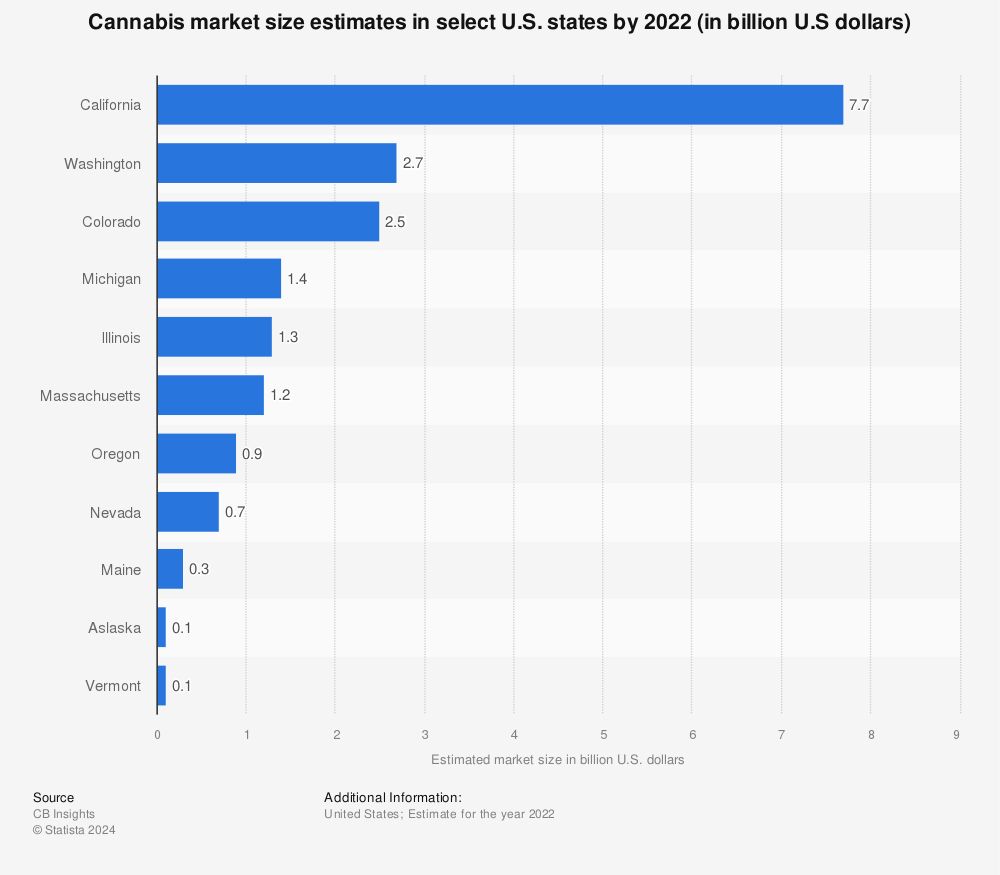Cannabis Licensing
– Cannabis Licensing
As this emerging market of Marijuana and Hemp evolves, the opportunity for business ventures expands. The variety of available marijuana licenses is increasing as the regulatory agency works to bring diversity into the market and paths for CareGivers to move into a more regulated market. Most notably is the proposed Micro Business Class A license.

Find more statistics at Statista
5 Types of Licenses
Cultivation and Growing (Class A – up to 500 plants; Class B – up to 1000 plants; Class C – up to 1500 plants)
Extraction and Processing (Licensed to possess, process, package, and store marijuana)
Secure Transporter (The only individuals that are authorized to transport marijuana between different facilities)
Provisioning Center (Also known as a Dispensary)
Safety Compliance Facility (Licensed to receive marijuana and pick up marijuana samples from other marijuana licensed facilities or registered primary caregivers)
Micro-Businesses
A Micro Business is a vertically integrated business where all products are produced from a crop of 150 plants per year.
A proposed new license, the Class A Microbusiness would increase the number of plants to 300 and allow the purchase and sale of products from licensed processors.
Application Process
The application process is a two step process – but you definitely should not try to tackle this on your own! The first step is called the PREQUALIFICATION and the second step is called the POSTQUALIFICATION.
During PREQUALIFICATION all applicants (including supplemental – those that have less than 10% interest in the company) fill out an application and provide the Marijuana Regulatory Agency with the proper documentation which includes demographic information, bank statements, criminal history, etc., and a $6,000 non-refundable application fee for the entire application (not per applicant). The analyst assigned to your case will review all the documentation and may send back documentation known as Deficiency Notices requesting more information, if that is that case, you will have to provide them with more information within 5 business days or your application is at risk of being denied. Once you have received your prequalification letter you can provide to the second step.
During POSTQUALIFICATION, you are required to lease or purchase the premises necessary for the facility and receive approval from the analyst. During this step, the location is vetted for business specifications, financial responsibility, municipality requirements, and zoning regulations and employee information. Once these hurdles have been passed, you will receive your postqualification and be required to pay a licensure fee. Only after the fees are paid and inspections are completed will the facility be allowed to open and operate.
Therefore, it is necessary that you hire an experienced attorney to handle cannabis licensing for you!